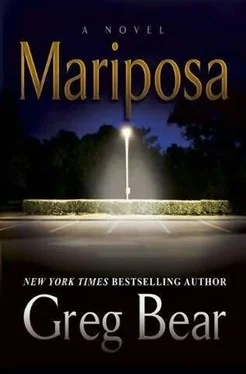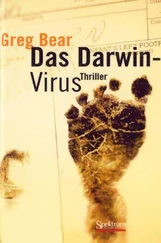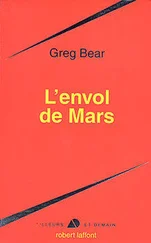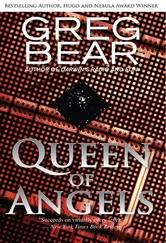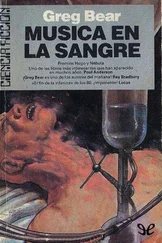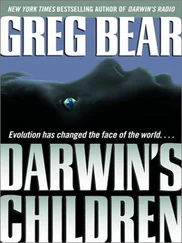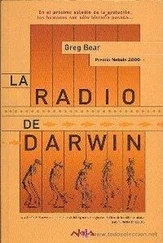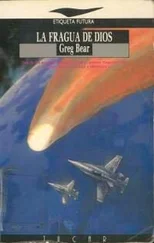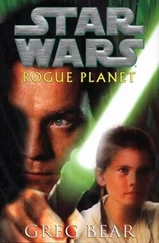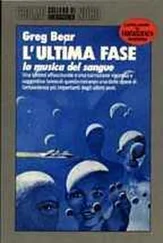
The second book in the Quantico series, 2009
For David and Diane Clark, profiles in courage
Washington, D.C.
Number One Observatory Circle
Official Residence of the Vice President of the United States.
Edward Benjamin Quinn wiped his hand on a towel and stood back to survey the damage.
The woman on the floor had a slight pulse and was still breathing, but with a slow, jerked rhythm. Soft brown hair fanned in a dark halo around her contorted face.
Irreparable.
He knew a thousand ways he could have killed her outright, and so he must have decided he was going to let her live a little longer. The question was why, of course. He and Beth-Anne hadn't argued. He wasn't drunk, he didn't feel crazy, he wasn't even upset-and he didn't think he had been drugged.
He felt fine, better than fine; he felt strong, justified, square with the big-all world. Without guilt, you learn the quality of your soul. Cross that border and you learn what you are really capable of.
There would be consequences, of course.
Outside, the president was still in the hospital, recovering from three bullets. It had happened in Dallas, of all places. Fortunately she was out of the woods-out of the hospital and out of Dallas -and able to make decisions, but for eight hours Eddie Quinn had been president. Under the circumstances he did not enjoy that honor, but nothing had gone so wrong that he needed to do this.
He couldn't feel the love or the excitement he and Beth-Anne had once known, but that didn't seem reason enough, either.
He walked into the bathroom and inspected the folds of his robe for blood. After washing his hands, he returned to pick up the towel and toss it into the laundry hamper. While he was making this circuit, Beth-Anne stopped breathing. For that he was grateful.
"You're one screwed-up bastard, Eddie," he said.
If this had happened during the eight hours he had been president…
"Whoa."
A full-length mirror hung on the back on the bathroom door. He let his robe fall around his broad shoulders and looked at himself as if for the first time. His was still a strong body, with thick, strong arms and short, powerful legs. A paunch had settled over his stomach, from years on the campaign trail and sitting rather than pumping iron and running. Hairs curled around his back, forested his arms, and almost hid the long, coiled scar that stretched from his neck down his right arm. A nice bit of needlework, that. A good stitch. A man's blast-sharpened rib had once stuck out of his chest, just below the clavicle. The hair on his abdomen pointed toward midline and navel, monkey's fur silky and thick. Another scar coiled there, pink and bald, like a burrowing pink centipede. He could almost imagine it creeping under his flesh. It was that vivid, almost pleasant to think about. More pleasant than remembering how the scar got there. The suicide bomber had actually bitten him. Fragments of exploded mandible. Hard to forget things like that, very hard: but he had gotten treatment and it had worked, hadn't it?
Then why this?
He tied the robe shut and sat on the edge of the antique maple-frame bed where he and Beth-Anne had made their last child, Jacob: now nine months old, asleep down the hall in the bedroom that he shared with his sister Carina. It was the nanny's night off.
Carina, eight years old, adored her new brother. In a few minutes, Edward would go in and read her a bedtime story.
On the nightstand, his security badge beeped. The house monitored it all. The children's clothing, furniture, and bedding were tagged with small sensors, but he and his wife had chosen to keep their privacy-except when wearing the badges. Still, the house knew something bad had happened. The Secret Service would be here in a few minutes.
One thing at a time.
He walked slowly down the hall to the children's bedroom, arms out like a bird, face creased by a quizzical frown. Pushing open the heavy wooden door, he smiled at Carina where she sat in the outer nimbus of her ceramic moon-glow lamp. He leaned over the crib to check on Jacob-mostly asleep and beautiful-then stooped to pick up The House on Pooh Corner and resume where they had left off the night before.
A lovely peace descended upon Eddie Quinn. The promise of Mariposa held true even now-no guilt, no borders, the past wiped away.
It was so rare that he had time to spend with his family.
FBI Academy
Quantico, Virginia
William Griffin walked across the concrete to the Jefferson building, footsteps echoing in the eerie morning quiet. The air smelled sweet and cool. A few green-brown leaves whispered past in a gritty swirl between the towers.
The sun cast a long, flicking shadow.
The old FBI Academy in Quantico-the Q-was practically empty. Just a few administrative offices remained, everything else boarded up, mothballed, or on the move to Alameda, where the jewel in Hoover's tarnished tiara was supposedly being reanimated-if congress approved a massive appropriation. Twenty-five billion dollars. But that was looking less and less likely, stalling the Bureau's transfer indefinitely.
For the moment, that was its name-simply the Bureau.
The Academy buildings had suffered neglect: peeling paint and cracked concrete, patchy brown lawns on the surrounding low slopes, varmint mounds and runnels everywhere. Last year, movers had hauled away the monuments to 9/11 and 10/4, the simple black stone replica of New York's twin towers, rising from a Pentagon base, and a donut of twisted steel from the Seattle ferry Duwamish. The Duwamish had been blown up not by Muslim terrorists but by a demented creep from Missouri, infuriated by gay marriage.
All the old signs had been covered with plastic or pulled out, leaving pits in the walls.
For now, the Bureau was divided like the Roman Empire of old into East and West: two competing directors, two budgets, and next to no money.
Another day older and deeper in debt.
A tall, graying security guard unlocked the heavy glass door as he approached. "You know where to go, Agent Griffin," the guard said. "Don't get lost. Mr. Hoover's still spookin' around. I hear he's been getting the goods on a few devils, kicking butt and takin' names."
William chuckled. "What's he got on you, Clarence?"
"The ladies, my man." Clarence winked. "Sleek, smart ladies in tight-fittin' power suits. Black or white, Hispanic or Asian, I love 'em all."
"And they love you."
"No time, and still I wish they was more!" Clarence called after him.
While the investigative divisions of other agencies-ATF, Homeland Security, Diplomatic Security, Treasury, even the IRS and the Postal Service-had been happy to suck up some high-profile, high-publicity cases, none had the forensic expertise or the laboratory throughput, and crime never slept.
Nobody knew how that song would end.
Much of top FBI management had evacuated to sunnier positions, leaving behind a few dedicated souls and some spectacular incompetents. William was fortunate that his boss, Alicia Kunsler, fell into the first category.
He hung a left past the broad conversation pit, empty but for two upended couches and rolls of old carpet, and walked along a hallway now bereft of J. Edgar Hoover's favorite pastoral prints. Just a long row of rectangles on a sunned and peeling wall.
Kunsler kept her lonely office at the end of an empty corridor. The overhead lights had been dimmed or removed, but the glow from her half open door guided him around an abandoned desk, a few old gray steel swivel chairs, a tied stack of cardboard, and a bin filled with newspaper clippings someone had deemed unnecessary.
Читать дальше
